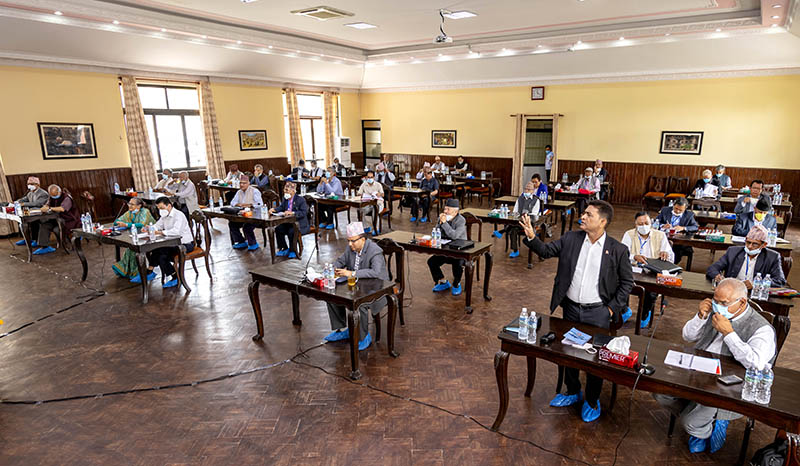‘Anti-national’ Mahakali Treaty comes back to haunt ‘nationalist’ Oli
KATHMANDU, JUNE 28
Nepal Communist Party (NCP) leader Bamdev Gautam, who had stopped criticising the prime minister in recent weeks, appears to have found new voice in taking the PM to task of late.
Gautam, who left the Bhainsepati alliance, an alliance led by party Co-chair Pushpa Kamal Dahal and senior leader Madhav Kumar Nepal, in April after Prime Minister KP Sharma Oli assured that he would get him into the Parliament and eventually make him the PM, had stopped criticising the PM directly or indirectly.
But in the party’s Standing Committee meeting, he demanded that the party should admit that action taken against him and 15 other leaders of the erstwhile CPN-UML for terming the Mahakali Treaty ‘anti-national’ was wrong.
Although Gautam, who is the vice-chair of the party, did not name the PM directly in his remarks, his ire was directed against Oli as he was the UML’s key leader who supported the Mahakali Treaty.
According to a press release issued by Gautam’s private secretariat, he told the party Standing Committee yesterday that he and 15 other former CPN-UML leaders, who had called the Mahakali Treaty anti-national, were unjustly expelled by the party. He demanded that the Standing Committee decide that the charge levelled against him and other opponents of the Mahakali Treaty and the decision of the UML at that time was wrong.
Gautam, CP Mainali and other key leaders of the erstwhile UML split the party over their differences on the Mahakali Treaty signed between Nepal and India in 1996. Recently, Janata Samajwadi Party-Nepal leader Upendra Yadav said the leaders who had played a key role in the signing of the Mahakali Treaty should apologise to the public for failing to determine the origin of the Mahakali River in the treaty.
Nepal recently issued a new map depicting Limpiyadhura, Lipulekh and Kalapani as Nepal’s territories and Nepal’s stated position is that Limpiyadhura is the origin of the Mahakali River. India has administrative and political control over these territories and claims these areas as its own.
A version of this article appears in e-paper on June 29, 2020, of The Himalayan Times.
READ ALSO:






